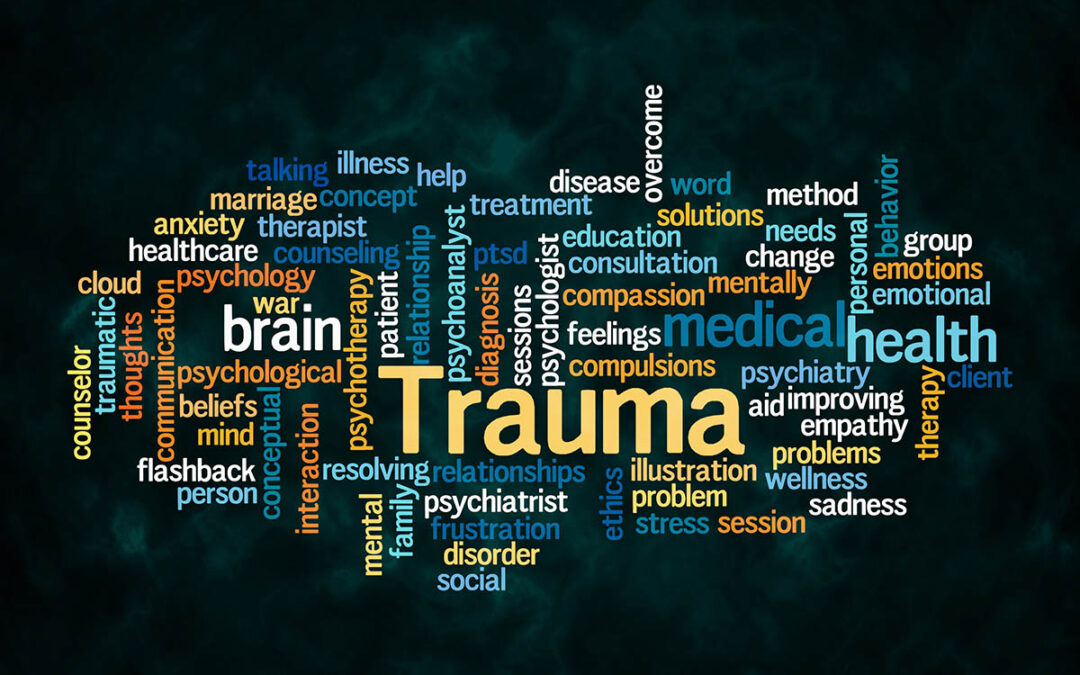Trauma can be defined as a distressing or disturbing experience that overwhelms an individual’s ability to cope. While trauma is often associated with psychological distress, it can also be stored in the body. This is because traumatic experiences can trigger a physiological response that becomes imprinted in the nervous system, causing a person to feel physical symptoms long after the traumatic event has ended. In this blog post, we will explore how trauma can be stored in the body and its effects on our overall health and well-being.
The Physical Manifestation of Trauma
The physical symptoms associated with trauma can range from mild to severe and may include:
• Chronic pain
• Insomnia
• Fatigue
• Digestive issues
• Headaches
• Hypervigilance
• Muscle tension
• Panic attacks
These symptoms are not only uncomfortable but can also significantly impact an individual’s quality of life. For example, chronic pain can make it difficult to perform everyday activities, while insomnia can lead to exhaustion and irritability.
The Role of the Nervous System
Our nervous system plays a crucial role in how we respond to stress and trauma. When we experience a traumatic event, our body’s stress response is triggered, causing the sympathetic nervous system to activate. This results in the release of stress hormones such as adrenaline and cortisol, which prepare the body for fight or flight. While this response is useful in the short-term, if it becomes prolonged or chronic, it can have detrimental effects on the body.
In addition to the sympathetic nervous system, we also have the parasympathetic nervous system, which is responsible for restoring balance and promoting relaxation. When we experience trauma, our parasympathetic nervous system may become impaired, leading to a state of hyperarousal or hypervigilance.
The Impact of Trauma on the Body
The physical symptoms associated with trauma are not just a result of the stress response; they can also be linked to changes in the brain and the body’s immune system. Research has shown that trauma can affect the structure and function of the brain, leading to alterations in mood, memory, and perception. Furthermore, trauma can lead to chronic inflammation in the body, which can contribute to a range of health problems such as cardiovascular disease and autoimmune disorders.
Trauma can also impact our relationships with others. For example, if someone has experienced trauma in the past, they may struggle with forming close relationships or may have difficulty trusting others. This can lead to feelings of isolation and loneliness, further exacerbating the impact of trauma on overall health and well-being.
Healing from Trauma
While the physical symptoms of trauma can be debilitating, there is hope for recovery. Various therapies, such as cognitive-behavioral therapy, exposure therapy, and eye movement desensitization and reprocessing (EMDR), have been shown to be effective in treating trauma. These therapies can help individuals process their traumatic experiences and develop coping strategies to manage symptoms.
In addition to therapy, self-care practices such as mindfulness meditation, exercise, and social support can also be helpful in managing the physical symptoms associated with trauma. It is essential to remember that healing from trauma is a journey, and there is no “right” way to do it. Each individual’s experience with trauma is unique, and the healing process will look different for everyone.
In conclusion, trauma can have significant effects on the body, leading to physical symptoms that can be uncomfortable and debilitating. While it is not possible to erase the impact of trauma completely, there are various therapies and self-care practices that can help manage symptoms and promote healing. It is important to seek support and to remember that healing from trauma is possible, even if it takes time and effort.

